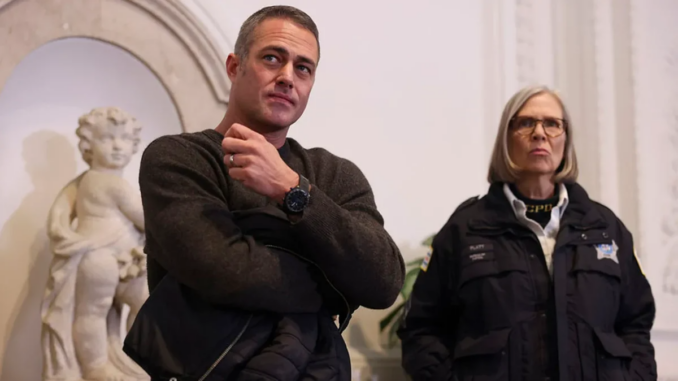
Chicago Fire Season 13, Episode 13 Review: Another Old Enemy Makes a Frustrating Return
“Chicago Fire” has always been a masterclass in building tension, weaving together compelling character dramas with high-stakes emergency calls. However, Season 13, Episode 13, sees the return of a familiar antagonist, and the reaction from fans has been decidedly mixed. While the show consistently delivers thrilling action, the reappearance of this particular “old enemy” has left many feeling frustrated, questioning the narrative choices and the overall direction of the season.
The Return of the Frustrating Foe: Who Is It?
Without spoiling the specific identity for those who haven’t watched, this “old enemy” represents a recurring obstacle for Firehouse 51. They’ve been a thorn in the side of our beloved firefighters, a character or entity that consistently undermines their efforts and creates unnecessary conflict. The frustration stems from the fact that this antagonist’s actions often feel repetitive and predictable, detracting from the show’s otherwise engaging storylines.
Why the Return Feels Repetitive
One of the primary criticisms is the lack of fresh material. The antagonist’s return doesn’t introduce new challenges or complexities. Instead, it feels like a rehash of previous conflicts, offering little in the way of character development or narrative progression.
- Same Old Tactics: The villain relies on familiar tactics, making their actions predictable and less impactful.
- Lack of Evolution: There’s little to no indication of growth or change in the antagonist’s behavior, making them feel stagnant.
- Missed Opportunities: The episode misses opportunities to explore new conflicts or introduce fresh antagonists, opting for a familiar, albeit frustrating, approach.
The Impact on Firehouse 51
The return of this enemy directly impacts the dynamics of Firehouse 51, creating tension and conflict among the firefighters. While internal drama is a staple of the show, the source of this conflict feels contrived and unnecessary.
- Increased Internal Friction: The antagonist’s actions exacerbate existing tensions within the firehouse, leading to arguments and disagreements.
- Distraction from Real Emergencies: The focus on the antagonist detracts from the high-stakes emergency calls, diminishing their impact.
- Erosion of Trust: The recurring nature of the antagonist’s actions can erode the trust between characters, creating a sense of unease and suspicion.
The Episode’s Strengths and Weaknesses
Despite the frustrating return of the antagonist, Episode 13 still delivers on the action and emotional depth that “Chicago Fire” is known for.
Strengths: The Firehouse Spirit Remains Strong
- Compelling Emergency Calls: The episode features gripping emergency calls that showcase the bravery and skill of the firefighters.
- Character Moments: There are moments of genuine connection and camaraderie among the firefighters, reminding viewers of the show’s heart.
- Visual Spectacle: The production values remain high, with impressive special effects and realistic portrayals of emergency situations.
Weaknesses: The Antagonist’s Shadow Looms Large
- Predictable Plot Points: The antagonist’s actions lead to predictable plot points, diminishing the suspense and excitement.
- Lack of Narrative Progression: The episode feels like a filler episode, offering little in the way of meaningful narrative progression.
- Frustration Over Resolution: The resolution of the conflict with the antagonist feels rushed and unsatisfying, leaving viewers with a sense of disappointment.
Fan Reactions and Online Discourse
The return of this particular antagonist has sparked a wave of online discussions, with fans expressing their frustration and disappointment.
Online Criticism and Disappointment
- Social Media Outrage: Fans have taken to social media to express their dissatisfaction with the episode, criticizing the writing and the antagonist’s portrayal.
- Forum Debates: Online forums are filled with debates about the antagonist’s relevance and the impact of their return on the show’s overall quality.
- Calls for Change: Many fans are calling for a change in direction, urging the writers to introduce new antagonists and storylines.
The Need for Fresh Conflict
The overwhelming sentiment among fans is a desire for fresh conflict and new antagonists. While recurring villains can be effective, their overuse can lead to fatigue and frustration. “Chicago Fire” needs to explore new avenues for conflict, introducing characters and situations that challenge Firehouse 51 in unique and compelling ways.
Maintaining the Show’s Integrity
Ultimately, “Chicago Fire” must maintain its integrity by delivering storylines that are both engaging and meaningful. The return of a frustrating antagonist can undermine this goal, detracting from the show’s overall quality and diminishing its impact. The show’s writers should strive to create conflicts that are both challenging and rewarding, offering viewers a sense of satisfaction and emotional connection.